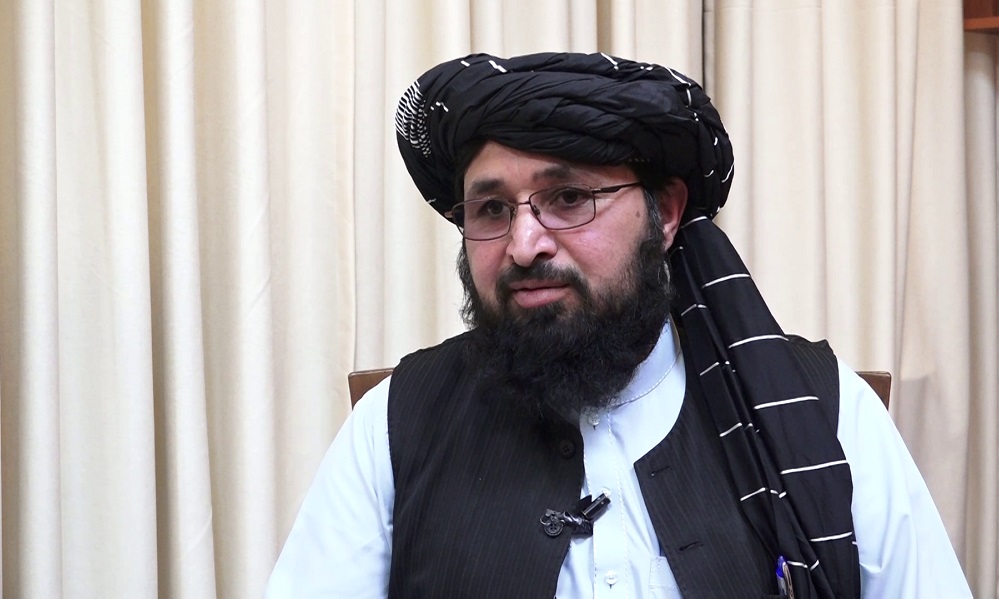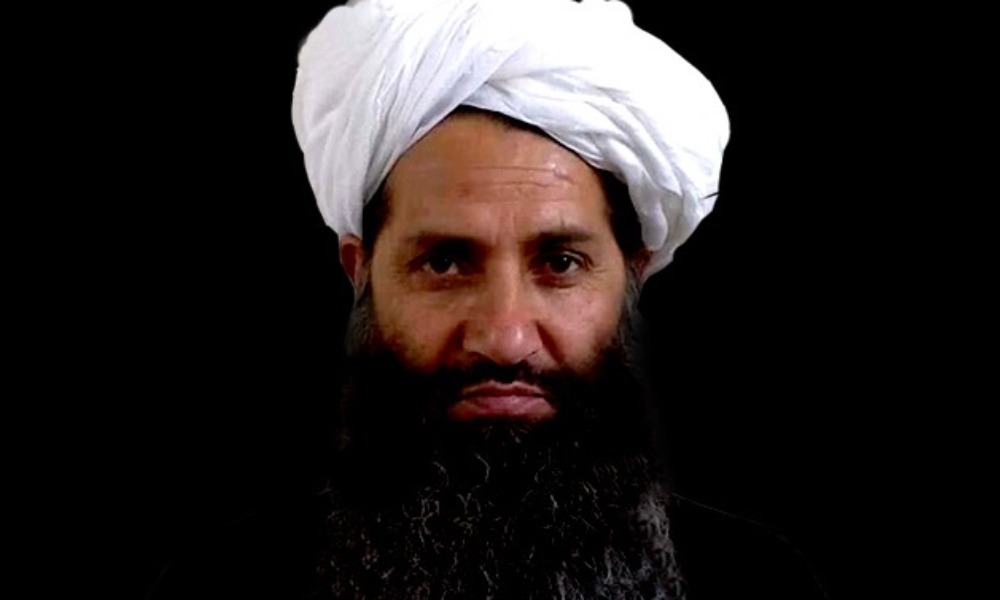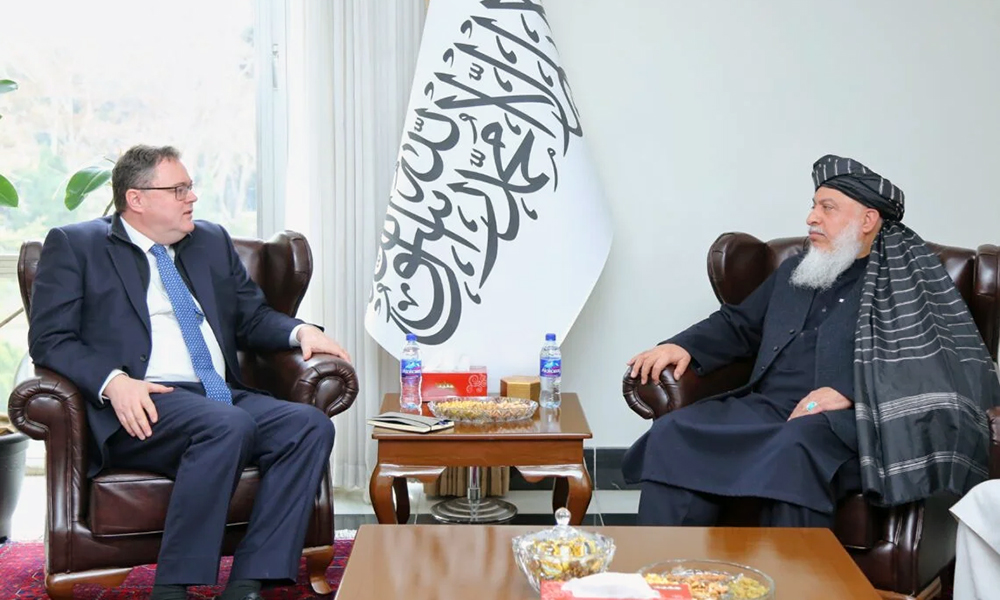Latest News
IEA committed to ensuring women’s rights under Islamic law: Karimi

On International Women’s Day, the United Nations in Afghanistan on Wednesday renewed its call on the Islamic Emirate of Afghanistan (IEA) to halt and reverse restrictions on the fundamental rights of women and girls.
UNAMA said in a statement that these restrictions are at odds with human rights obligations set forth in instruments concerning human rights and fundamental freedoms to which Afghanistan is a State party and by which it is bound, and damages Afghanistan’s prospects of recovering from decades of war.
“Afghanistan under the Taliban (IEA) remains the most repressive country in the world regarding women’s rights, and it has been distressing to witness their methodical, deliberate, and systematic efforts to push Afghan women and girls out of the public sphere,” said Roza Otunbayeva, UN’s special envoy for Afghanistan and head of UNAMA.
“Confining half of the country’s population to their homes in one of the world’s largest humanitarian and economic crises is a colossal act of national self-harm. It will condemn not only women and girls, but all Afghans, to poverty and aid-dependency for generations to come. It will further isolate Afghanistan from its own citizens and from the rest of the world,” Otunbayeva said.
In 2023, 13.8 million Afghan women and girls are in need of humanitarian assistance – yet the IEA authorities have undermined the unprecedented international aid effort by also banning women working in non-governmental organizations, even though they are crucial to the delivery of life-saving help, UNAMA said.
Meanwhile, special envoys for Afghanistan from several Western governments and the European Union said in a joint statement on March 7 that they had "grave concerns" about the deterioration of the humanitarian and economic situation in the IEA-led country. In the statement, the envoys from Australia, Canada, the European Union, France, Germany, Italy, Norway, Switzerland, Britain, and the United States called for the immediate reversal of the “unacceptable bans” targeting women and said they are preventing humanitarian assistance from reaching Afghans most in need.
In an interview with VOA, Rina Amiri, US special envoy for Afghan women, said that the international community has “made it clear to the Taliban (IEA) that ... if they do not restore the rights of women and girls ... there’s going to be no progress in terms of further normalization on any of the issues with which the Taliban (IEA) seeks to make progress.”
However, the Islamic Emirate says it is committed to respecting women's rights within the framework of Sharia law and does not accept interference in Afghanistan's internal affairs.
“The Islamic Emirate regulates the internal affairs of its country in a good manner and according to the supreme interests of the country and its Islamic values and according to the beliefs of the people of Afghanistan. It is better for external sides to fulfill their responsibilities and obligations. The fact that the people of Afghanistan are suffering from the outside and getting hurt should be resolved,” said Bilal Karimi, deputy spokesperson of the IEA.
Latest News
Human traffickers should be sentenced to 1 to 3 years in prison: IEA leader

The Leader of the Islamic Emirate has issued a decree instructing the Ministry of Interior Affairs to prevent human trafficking and to arrest and refer culprits to military courts.
The decree containing six articles says that that military courts should sentence human traffickers to one year in prison for the first time, two years if repeated for the second time and three years if repeated for the third time.
The ministries of Hajj, information, telecommunications, borders, propagation of virtue, as well as religious scholars are asked to inform the public about the dangers and adverse consequences of travelling through smuggling routes.
The decree comes as the rate of migration has increased following the political change in Afghanistan in 2021.
Latest News
Eight Afghan migrants die as boat capsizes off Greek island

Eight Afghan migrants died after a speedboat carrying migrants capsized off Greece's eastern island of Rhodes on Friday, the Associated Press reported.
Greek authorities said that the capsizing was the result of the boat’s maneuvering to evade a patrol vessel.
A total of 18 migrants — 12 men, three women and three minors — all Afghan nationals, were rescued, Greece's coast guard said Saturday. The dead were also from Afghanistan, it said.
Some migrants remained hospitalized, with one in critical condition, authorities said.
Two Turkish citizens, ages 23 and 19, were arrested as the suspected traffickers. The boat sank after capsizing, the coast guard said.
The sinking off Rhodes was the second deadly incident involving migrants in the past week.
Seven migrants were killed and dozens were believed missing after a boat partially sank south of the island of Crete over the weekend — one of four rescue operations during which more than 200 migrants were rescued.
Latest News
Norwegian Chargé d’Affaires meets with IEA deputy foreign minister
Welcoming the diplomat’s visit to Kabul, Stanikzai underscored the importance of political relations between Afghanistan and Norway, the foreign ministry said in a statement.

The Norwegian Chargé d’Affaires for Afghanistan, Per Albert Ilsaas, on Saturday met with IEA’s Deputy Foreign Minister for Political Affairs, Sher Muhammad Abbas Stanikzai, in Kabul.
Welcoming the diplomat’s visit to Kabul, Stanikzai underscored the importance of political relations between Afghanistan and Norway, the foreign ministry said in a statement.
In addition to focusing on bilateral political, humanitarian, and other pertinent issues, the two sides expressed hope that continued engagement would lead to constructive solutions to related issues.
This comes two weeks after the Foreign Ministry Spokesman Abdul Qahar Balkhi expressed disappointment regarding the decision by the Norwegian government to downgrade diplomatic relations with Afghanistan.
Balkhi said in a post on X that such decisions should not be linked with internal affairs of other countries.
“Diplomatic engagement is most effective when it fosters mutual understanding and respect, even amidst differing viewpoints,” he stated.
“Access to consular services is a fundamental right of all nationals. We strongly urge all parties to prioritize this principle in the spirit of international cooperation,” he added.
-

 Sport4 days ago
Sport4 days agoZimbabwe’s opening ODI against Afghanistan abandoned
-

 World4 days ago
World4 days agoNorth Korean troops suffer 100 deaths, struggling in drone warfare, South Korea says
-

 Latest News2 days ago
Latest News2 days agoAfghan men must stand with women to support viable future of country: US envoy
-

 Latest News3 days ago
Latest News3 days agoTwo horror accidents on Kabul-Kandahar highway leave 52 dead
-

 Sport3 days ago
Sport3 days agoAfghanistan crush Zimbabwe by 232 runs in second ODI
-

 Regional5 days ago
Regional5 days agoIran’s president to make rare visit to Egypt for D-8 summit
-

 International Sports4 days ago
International Sports4 days agoLanka T10: Kandy Bolts in at 4th spot in playoffs after thrilling day
-

 Tahawol5 days ago
Tahawol5 days agoTahawol: Latest developments in Syria reviewed
























